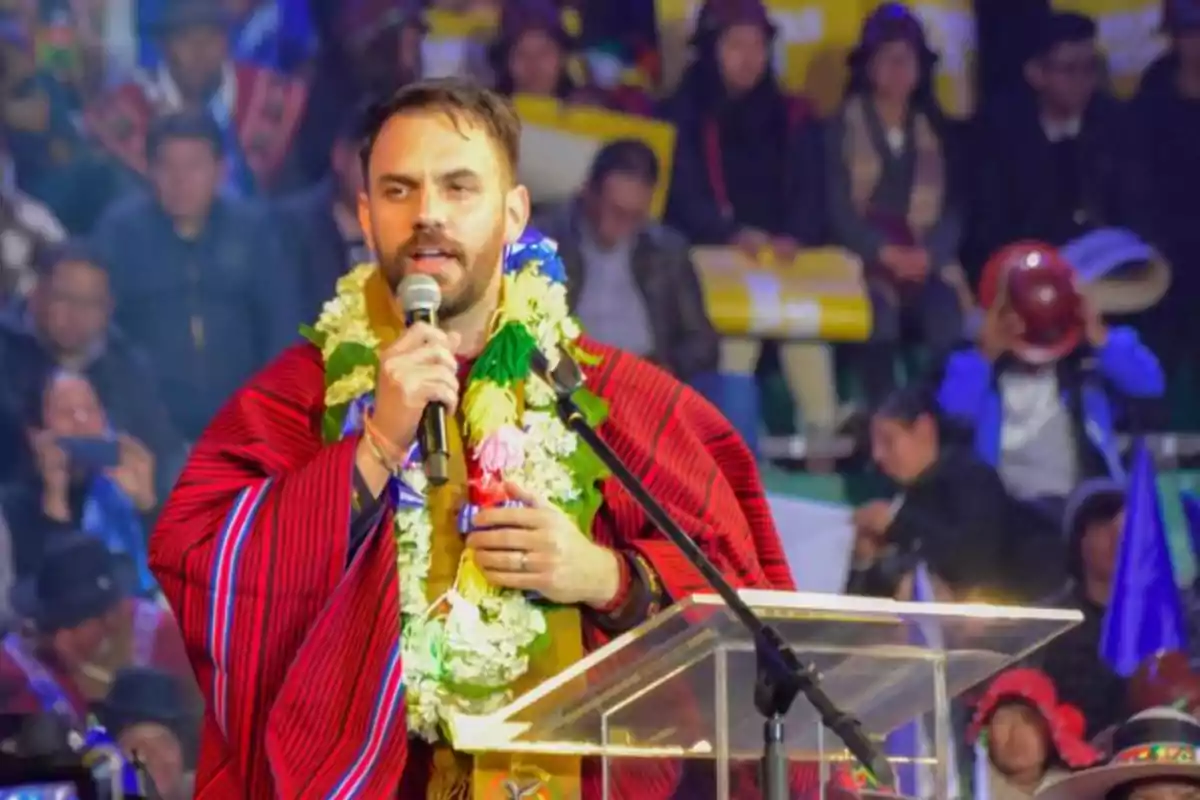
Masista proclamation: Del Castillo promised to continue with the impoverishing model
The former minister urged continuing with the process of change, ignoring the serious economic deterioration it has caused
The Movimiento Al Socialismo proclaimed on Friday Eduardo Del Castillo as its presidential candidate. The event took place at the Coliseo Cerrado Julio Borelli in La Paz, where his running mate, Milán Berna, was also presented. With this proclamation, the former Minister of Government officially began his electoral campaign.
The event brought together activists, government authorities and leaders of social organizations. The proclamation was accompanied by chants and symbolic rituals in honor of Pachamama.
Del Castillo focused his speech on a call for unity within the political instrument. He stated that the country needs to remain on the same path started in 2005 with the so-called democratic and cultural revolution.
He also defended the failed MAS model as the only alternative for the country. By doing so, he demonstrated that he ignores the current economic indicators that reflect a progressive economic deterioration. However, he promised that if he manages to take power, the popular sectors will be protected.
A speech without self-criticism

During his address, the former minister admitted thatthe country "is not at its best moment". He attributed the economic crisis to external causes, avoiding mention of the disastrous management of the current government.
Despite the widespread discontent, he insisted on the need to deepen the process of change. He claimed that "moments of crisis create strong men and women." With that argument, he sought to project leadership in the face of MAS's wear and tear.
Milán Berna, his running mate, defended the continuity of the socialist political project. He vindicated the criminal backgrounds of MAS mobilizations, union struggles, and indigenous movements.
He also argued that the new ticket embodies youth, experience, and commitment to the grassroots. His speech aimed to unite a party that is experiencing deep internal divisions. He also promised reforms in health, education, and land redistribution.
The Government supports the ticket
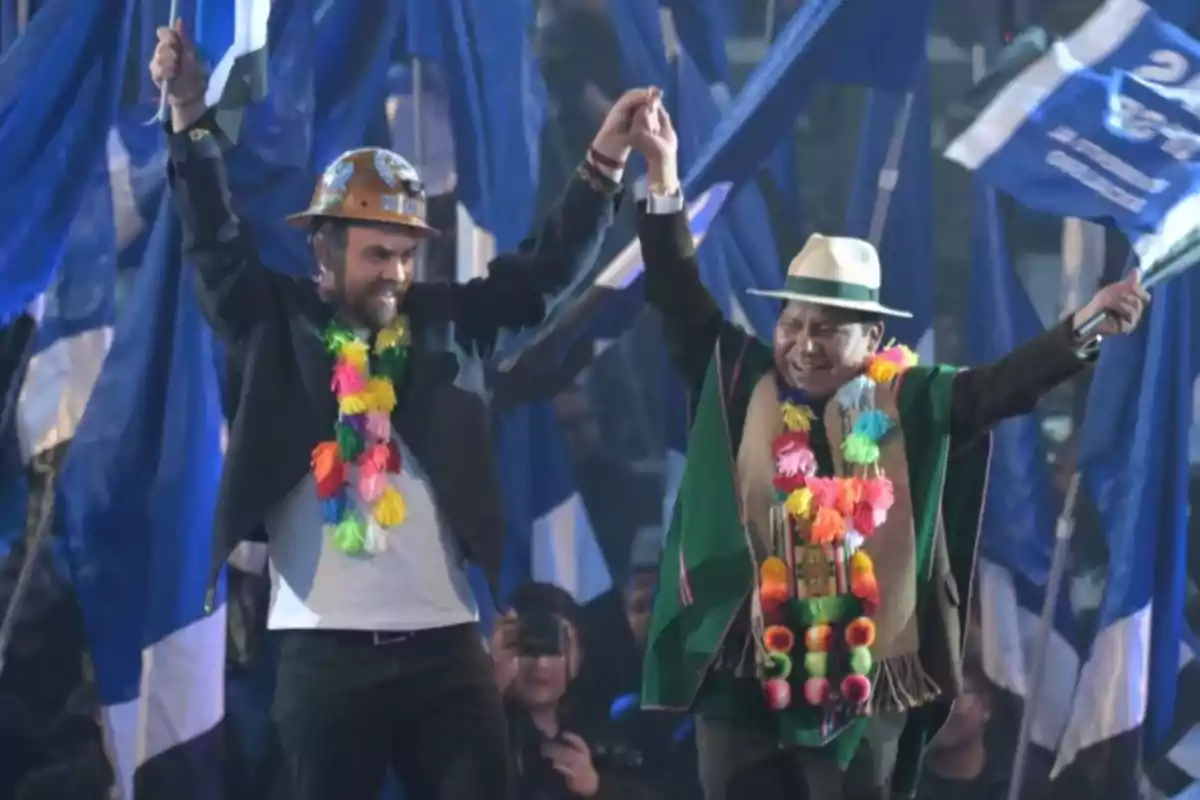
The event was attended by authorities of the current Government. Luis Arce and David Choquehuanca were among the first to arrive at the coliseum.
Ministers, deputies, and MAS leaders also participated. Their attendance was interpreted as institutional support for the Del Castillo-Berna ticket. However, they did not release statements during the event.
Del Castillo warned about a supposed "danger" if MAS loses the elections. "If we leave the government, those who will pay are the vulnerable sectors," he stated. With this phrase, he sought to position himself as the defender of the popular classes.
He also launched criticisms at the opposition candidacies, which he accused of elitism. According to him, the opponents seek to privatize education and exclude indigenous sectors.
MAS only appeals to confrontation
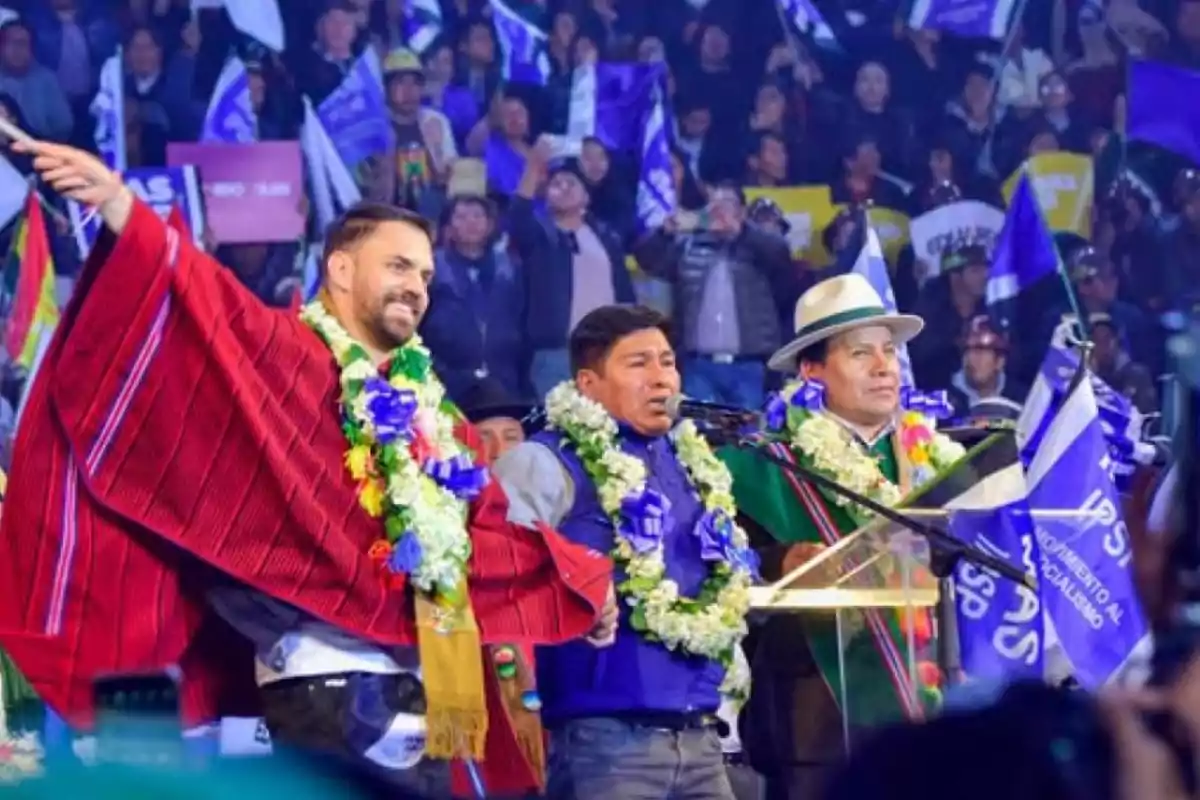
The former minister's speech was filled with the well-known socialist rhetoric, with which he sought to confront the population. He disregarded the contribution made by the business sector to the country. In contrast, he vindicated street vendors, miners, and transport workers as pillars of the nation.
He insisted that MAS was declared dead but that "it will bloom again." With already worn-out phrases, Del Castillo tried to encourage a militancy that apparently is gradually beginning to understand that MAS's days are numbered.
Despite the optimistic tone used by the event participants, the data show an adverse outlook. The last two polls give the Del Castillo-Berna ticket barely between 1.9% and 2.3% voting intention.
This reflects the end of MAS after decades of management marked by corruption scandals and crises. The stagnant economy has left thousands of families without jobs or stable income. The model they promise to continue only offers more misery to the population.
Continuing with the socialist model
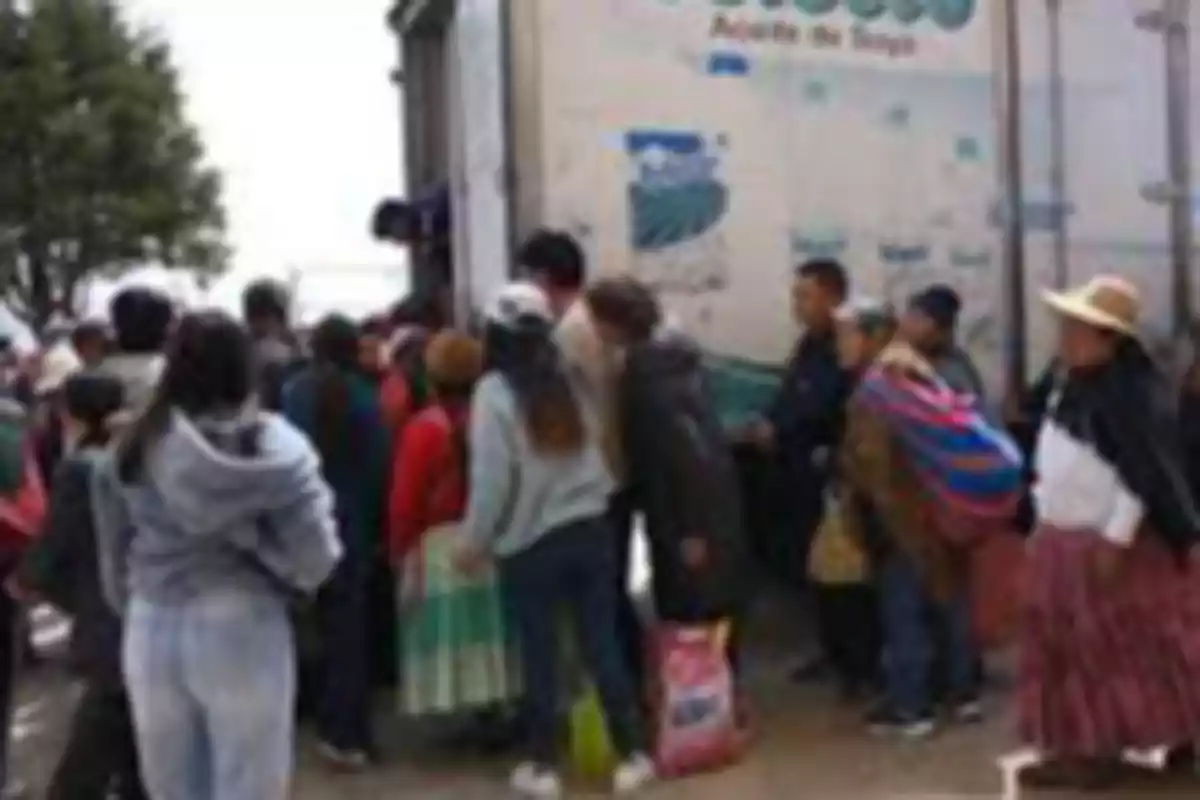
Del Castillo justified the impoverishing model with the promise of laws to ease the financial burden. He mentioned initiatives for debtors and entrepreneurs, although without presenting concrete measures.
He also accused the media and the opposition of manipulating reality. His strategy consists of dangerously appealing to resentment and party identity. He seeks to mobilize a small, demotivated militancy in the face of the lack of results.
The event was also attended by representatives of organizations allied with the government. Las Bartolinas, the Interculturales, and the CSUTCB expressed their support for the ticket. The speeches were marked by rhetoric of struggle and resistance.
However, they did not offer any self-criticism about the countless management errors. The disconnect between MAS's leadership and the real needs of the population was evident.
Édgar Montaño, Minister of Public Works, led the so-called "Blue Warriors." He defended the participation of public officials in the campaign event. "Let no envious person say that we misuse work time," he stated.
These statements reignited criticism over the use of state resources in the campaign. The ruling party continues to make no distinction between party and government.
The event caused more uncertainty
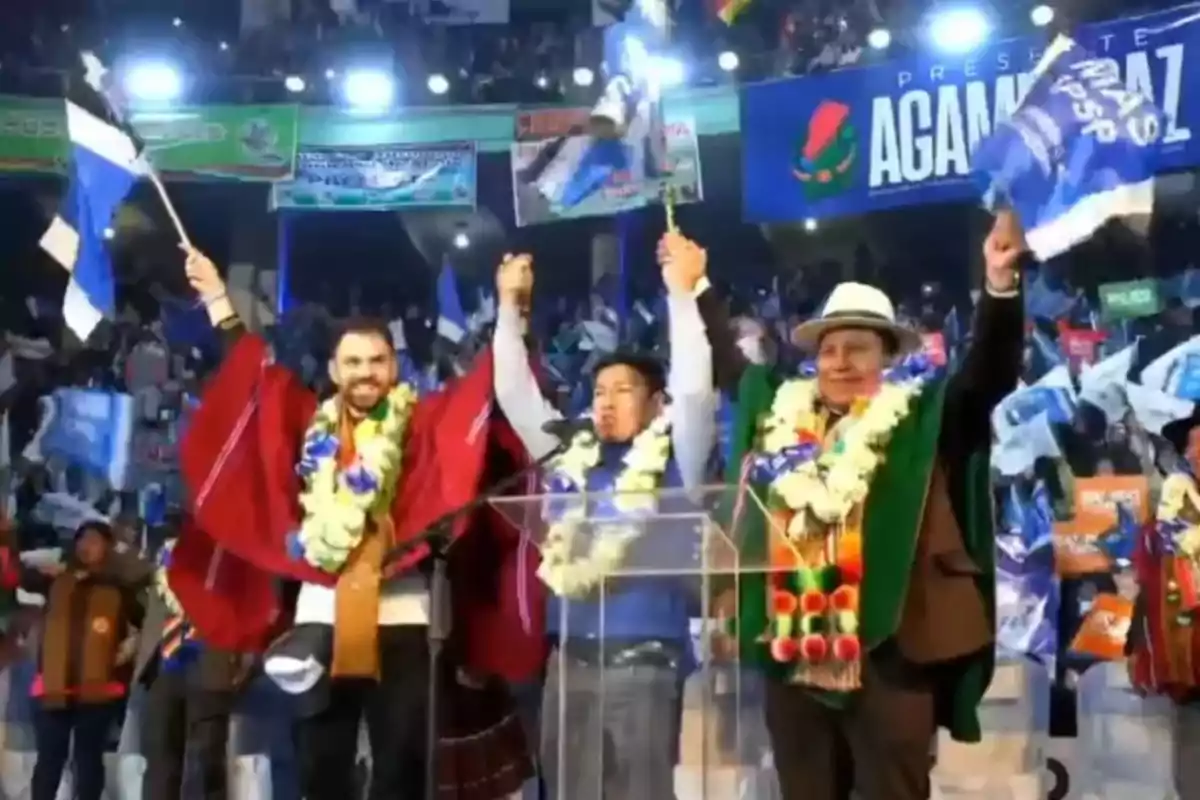
Del Castillo emphasized that the next government must be composed of young people and workers. He presented his candidacy as a new stage within masismo. However, he did not acknowledge that recent polls show that the "cultural revolution" seems to have run its course.
He also did not mention how he will address the fiscal deficit or the decline in reserves. Instead, he promised to "revive the country" with unity and political will.
Meanwhile, Berna spoke of transformative education with technology. He assured that they will promote a structural reform from the classrooms. His speech avoided figures or clear diagnoses of the education sector.
He also promised to improve the SUS, although he did not explain how he will finance it amid the terrible economic crisis. His interventions repeated the usual socialist demagogic promises, without new proposals.
Friday's proclamation marked the formal start of the MAS campaign. The event was marked by a repetitive speech. There were no concrete economic proposals or answers to the current crisis.
The ruling ticket appears determined to continue with the current model. Despite growing rejection, they insist on staying in power at any cost.
What was presented at the event shows that MAS's strategy is based on appealing to fear and party identity. They warn that, if they do not govern, the people will suffer. However, the management results and economic figures contradict that narrative.
The proclamation was an attempt to show unity, although internal fragmentation persists. The impoverishing model they defend is the same one that has brought the country to the brink of collapse.
More posts: